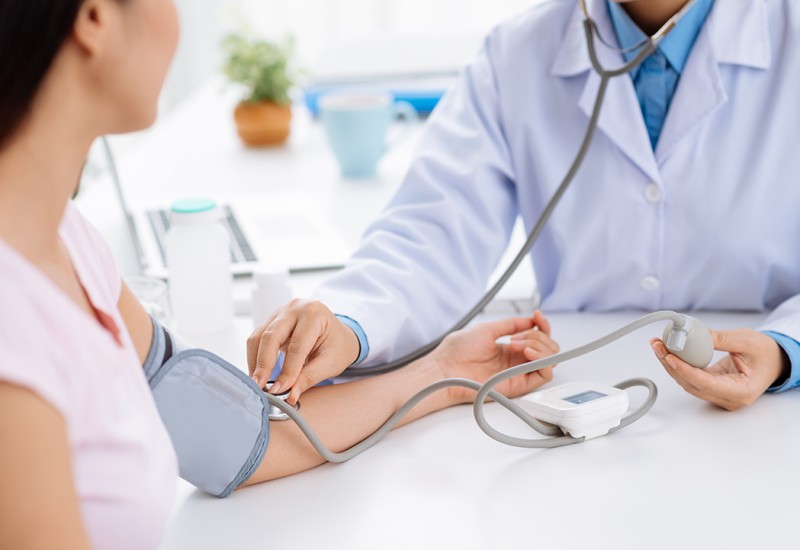
Specializations
Women Wellness Checkup

Women should receive a women's wellness checkup as part of their annual preventive healthcare package, which gynecologists recommend for everyone. During the visit, your doctor will perform a physical exam and review your medical history in detail.
Your exam may also include a Pap smear, pelvic exam and STD testing, depending on your age. Your gynecologist can also order mammograms or other screenings as necessary.
Dr. Bhumika recommends periodic checkups to all the women, regardless of their age and sexual history, to monitor and assess their overall health and well-being.
For women wellness checkup in Noida, visit Niraamaya clinic.
Don’t Ignore Your Periods
Your periods are an essential aspect of good gynecological health. It's when your uterus sheds its lining to help prepare you for pregnancy.
Most girls begin their periods between 10 and 15; however, some don't begin until 16 years of age. If your period appears irregular, it is best to see a doctor right away so they can determine what's causing it.
Keep track of your cycle with a calendar or app, so that it's ready when the gynecologist asks about when and how long it was since your last period.
Women usually experience periods that last between four and seven days. If your period seems shorter or longer than usual, this could indicate something more serious is amiss with your cycle. Often, this could be indicative of abnormal menstruation such as fibroids or endometriosis.
Don’t Ignore Your Breasts
Your breasts are an integral part of your reproductive system, so it's essential that they stay healthy and strong through proper nutrition, exercise and massage.
Even with routine checkups, some breast issues can still go undetected. For instance, a lump found in your breasts is not an ordinary symptom and should be evaluated promptly.
Self-exams can be beneficial, but experts advise being more aware of your breasts on a daily basis. Doing so will enable you to spot abnormalities that could indicate breast cancer early.
Next time you take a shower or apply lotion before bed, be sure to inspect your breasts. Use the same pattern you would when inspecting slices of pie: gently lift each breast and check for symmetry, changes in size or shape, any puckering or dimpling.
Breast exam to check for lumps, skin changes, or nipple discharge is essential for women wellness checkup in Noida, visit Niraamaya Clinic.
Don’t Ignore Your Urinary Tract
Urinary tract infections are one of the most prevalent medical issues women encounter, and they can be both painful and potentially hazardous if left untreated.
Urinary tract infections occur when bacteria accumulate in the urinary tract, leading to irritation and inflammation. The urinary tract consists of multiple organs such as the bladder, urethra and kidneys that work together in coordination to create this complex network of organs.
Untreated urosepsis, an infection of the kidneys, can spread rapidly if not addressed. This infection carries a high risk of spreading to other parts of your body and could result in kidney failure - leading to intensely painful and dangerous kidney failure.
A common sign of a urinary tract infection is an intense burning or stinging sensation when you urinate. Fortunately, this sensation usually goes away once treatment commences.
Additionally, pay attention to the color of your urine. If it has a red or pink tint, that could indicate that blood is present in your system.
Let Dr. Bhumika inspect for any UTI issue which is again very essential under women wellness checkup.
Don’t Ignore Your Heart
At your women wellness checkup in Noida Delhi NCR, be sure to have blood pressure measured and other health indicators assessed. These results can help your doctor detect and address any irregularities quickly.
It is essential to recognize that heart attacks are a real danger for women also now. They are the leading cause of death in the United States.
Many women disregard chest pain and other signs that they may be having a heart attack, since the symptoms can be mistaken for other health problems. It is especially important not to ignore symptoms not related to exertion such as shortness of breath or fatigue.
Women should make it a priority to understand their risk for cardiovascular disease, including high blood pressure, cholesterol, genetic predisposition and family history of heart problems. If these risk factors exist for them, then they should be on an established cardiac care schedule so that they receive timely medical care for their heart health needs.
- Pelvic exam to check your vulva, vagina, cervix, uterus, rectum, and pelvis, including your ovaries, for masses, growths or other abnormalities
- Pap test to screen for cervical cancer
- Vaccine recommendations based on your age and risks, etc.
